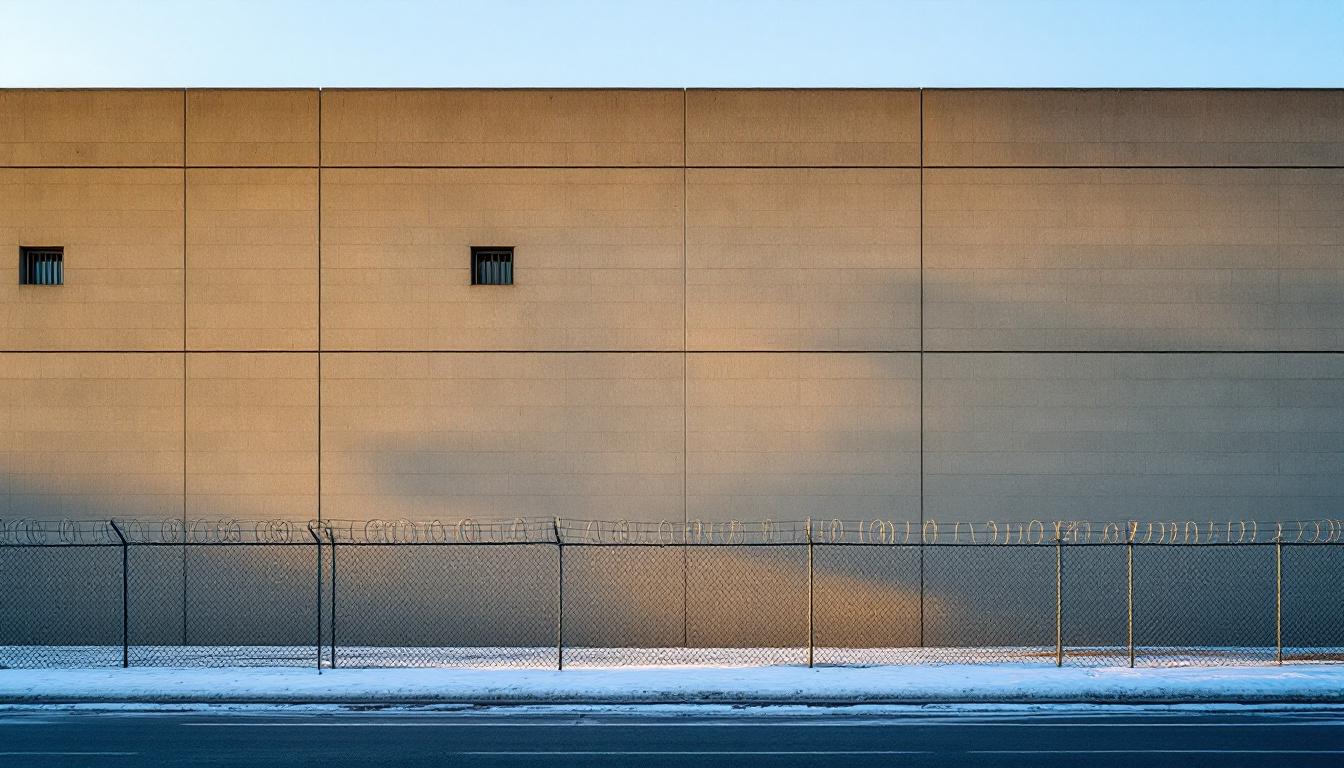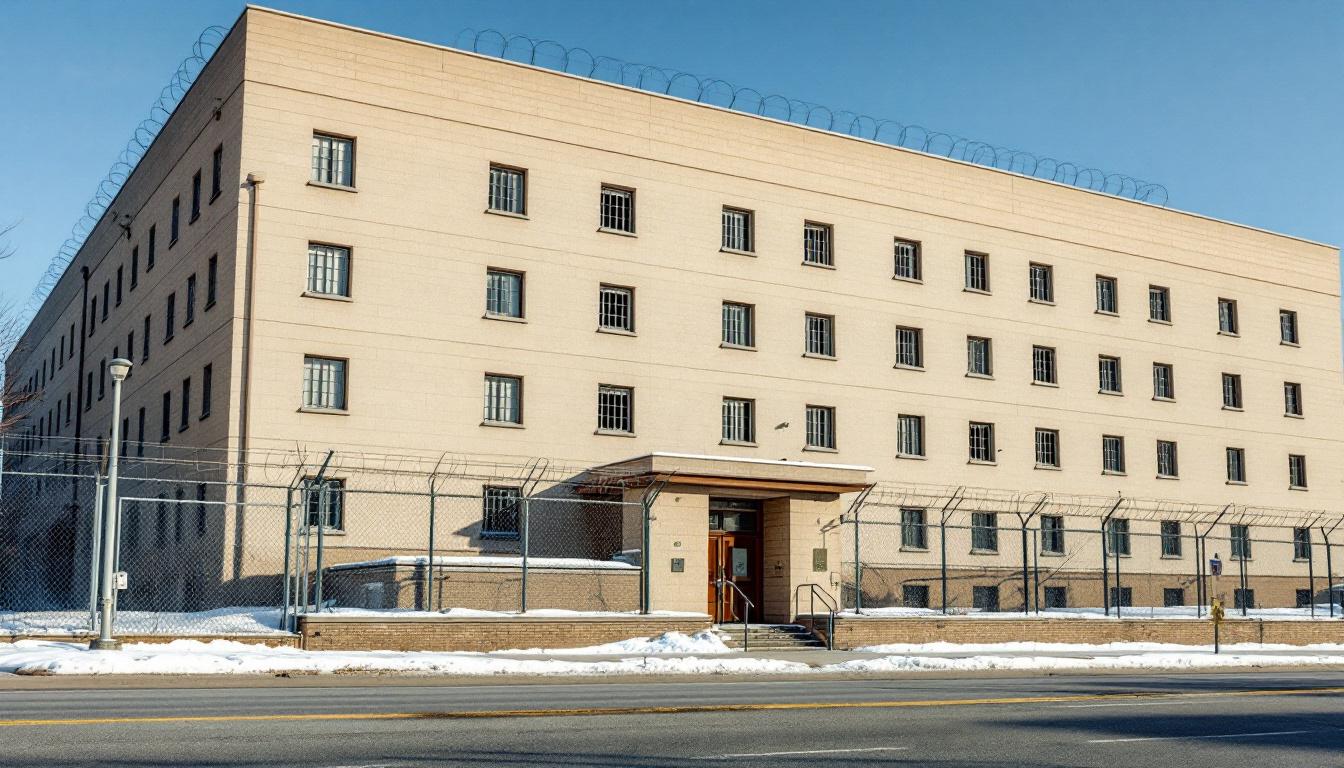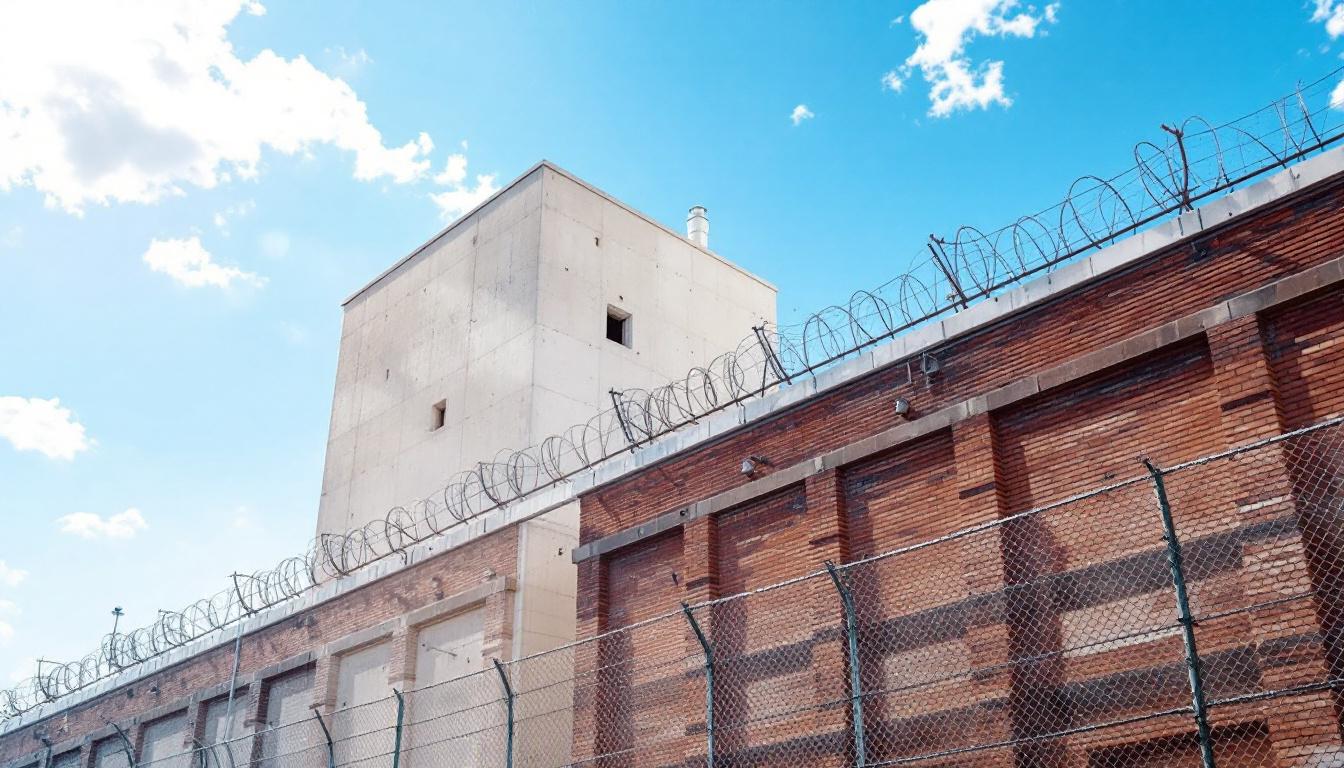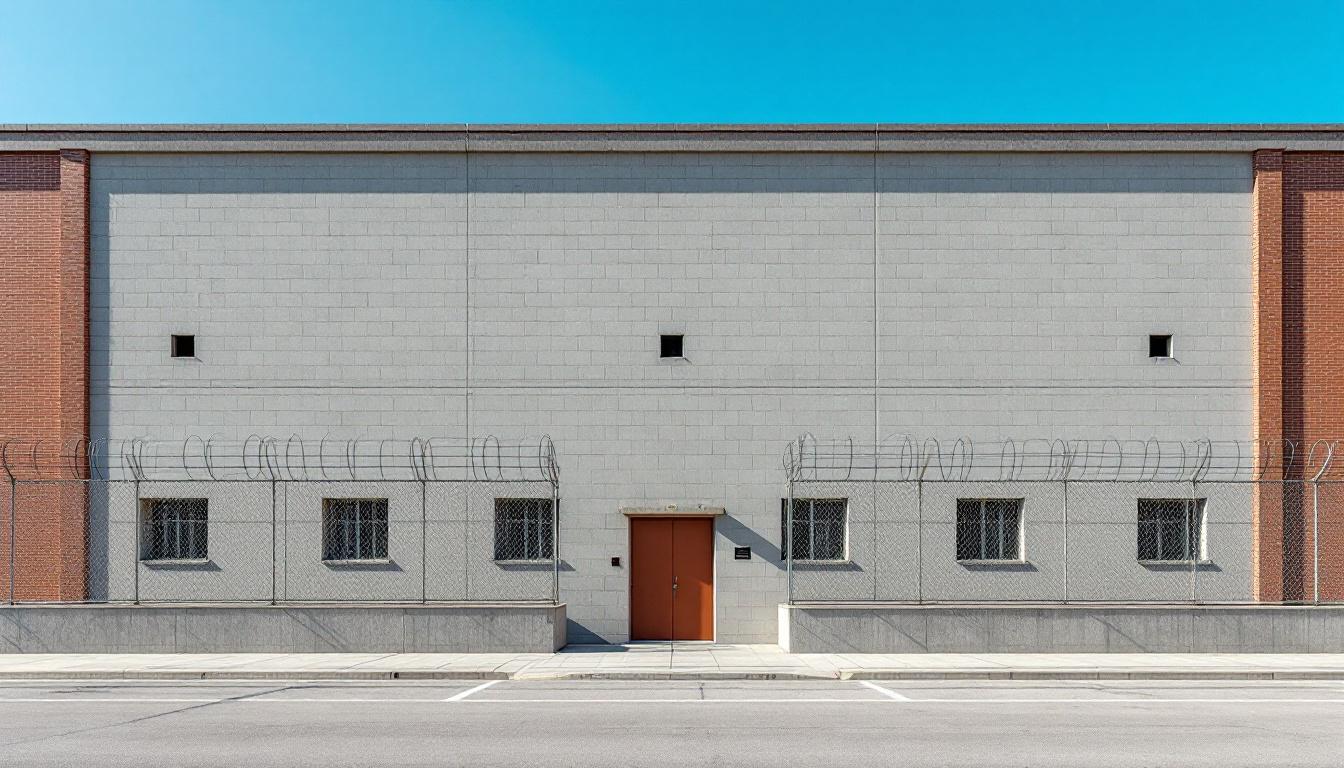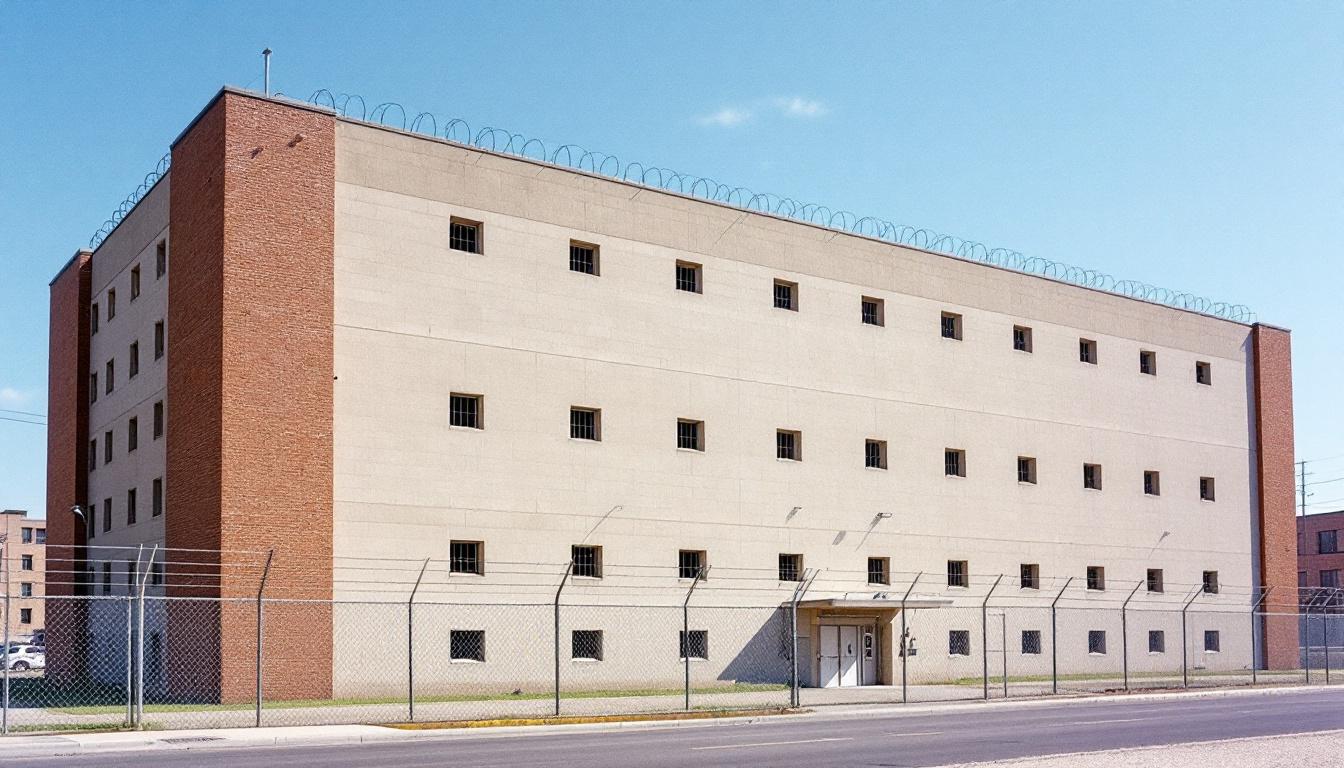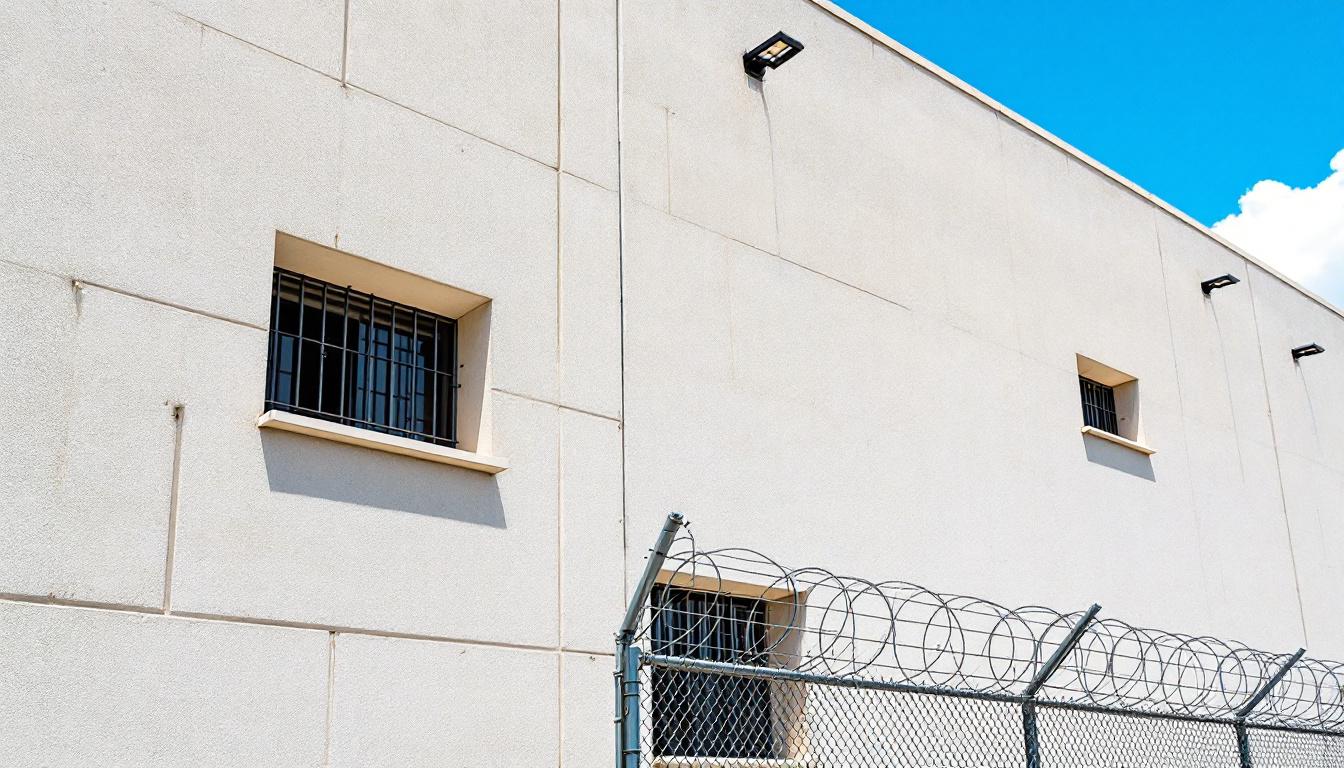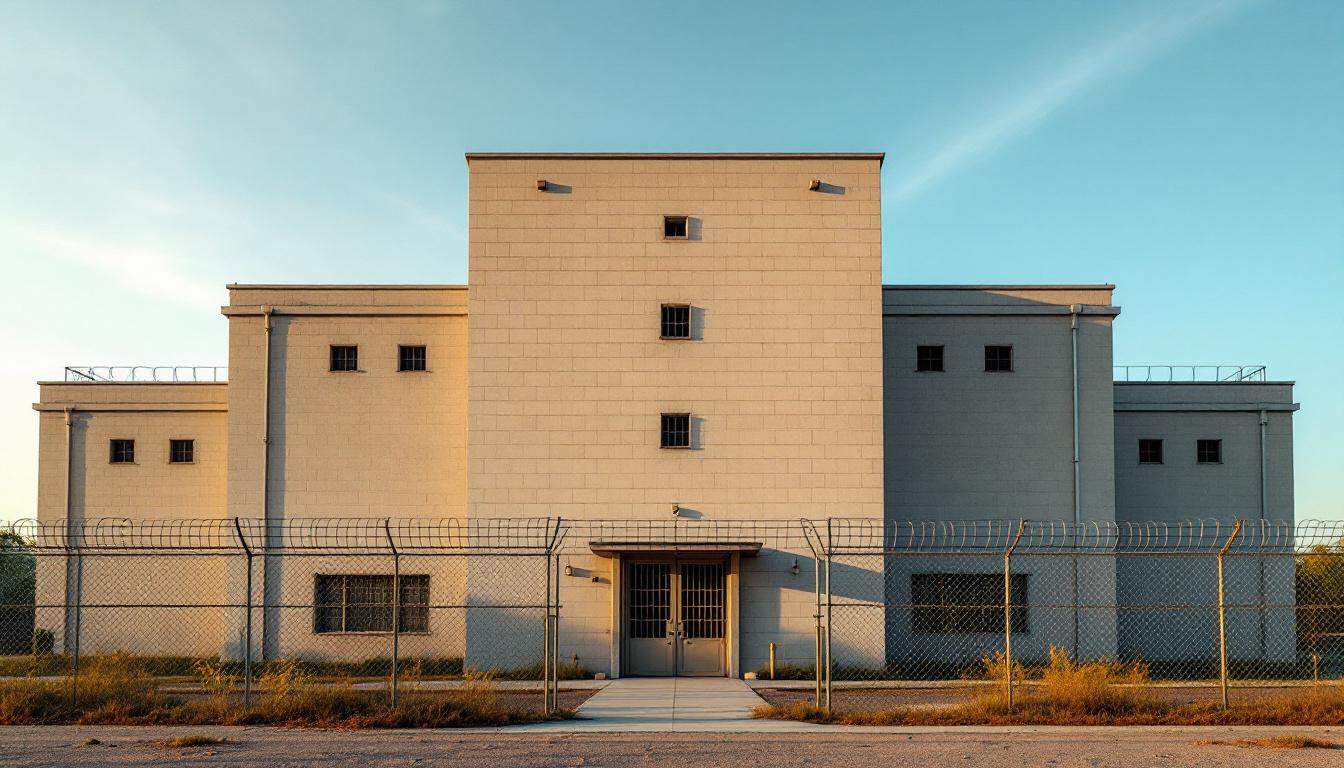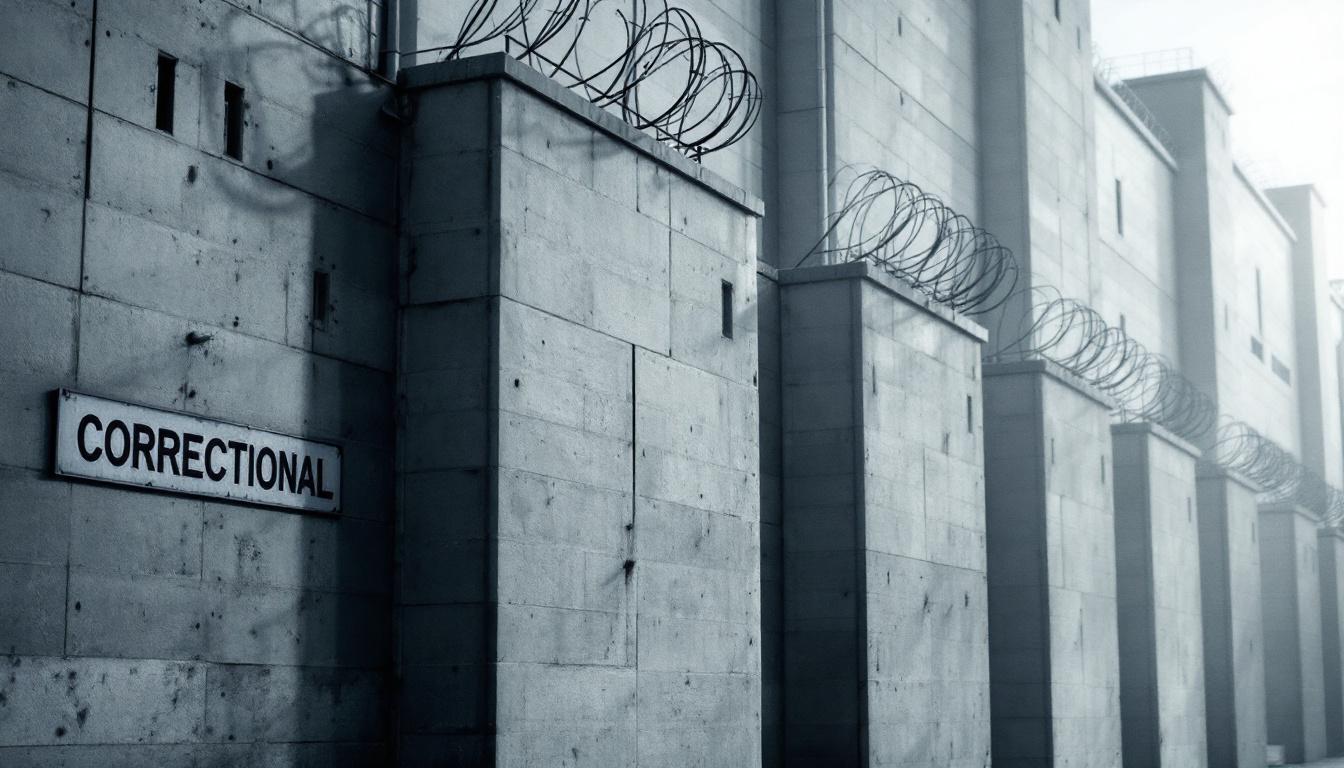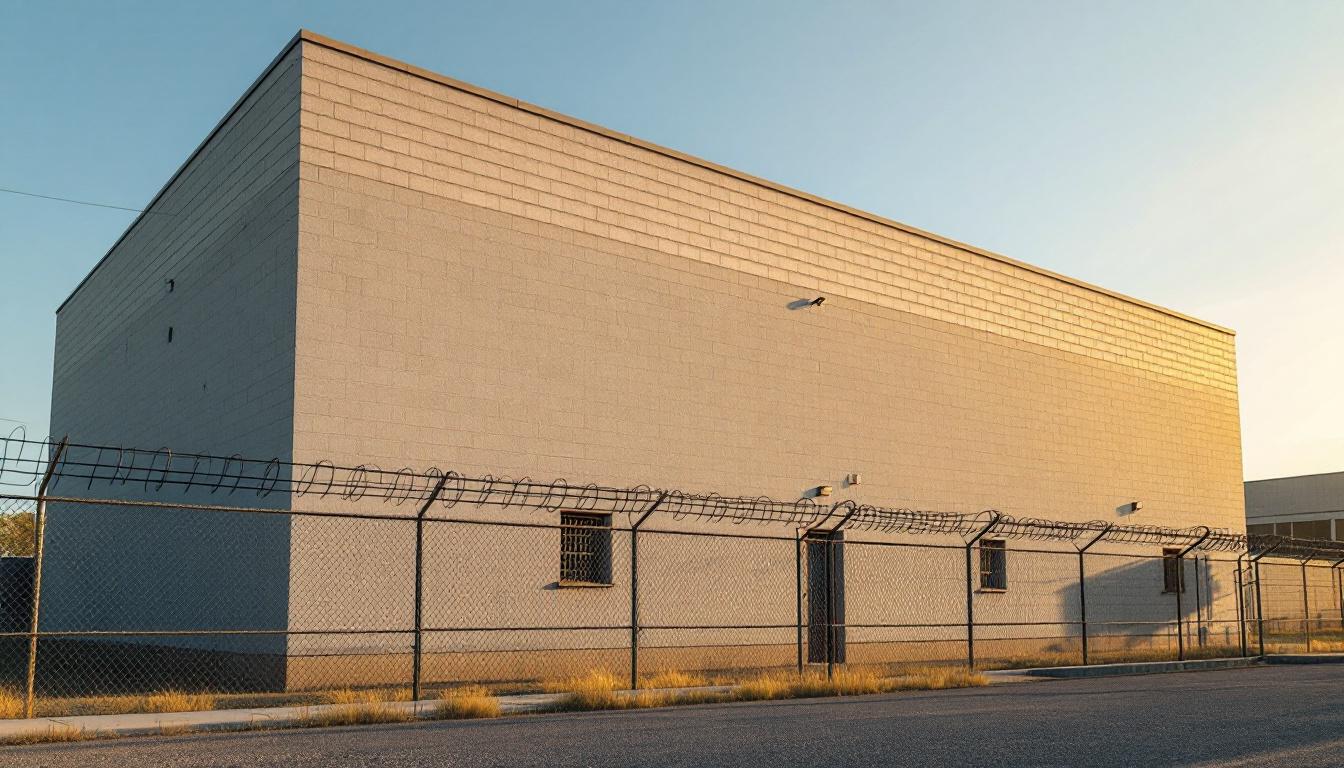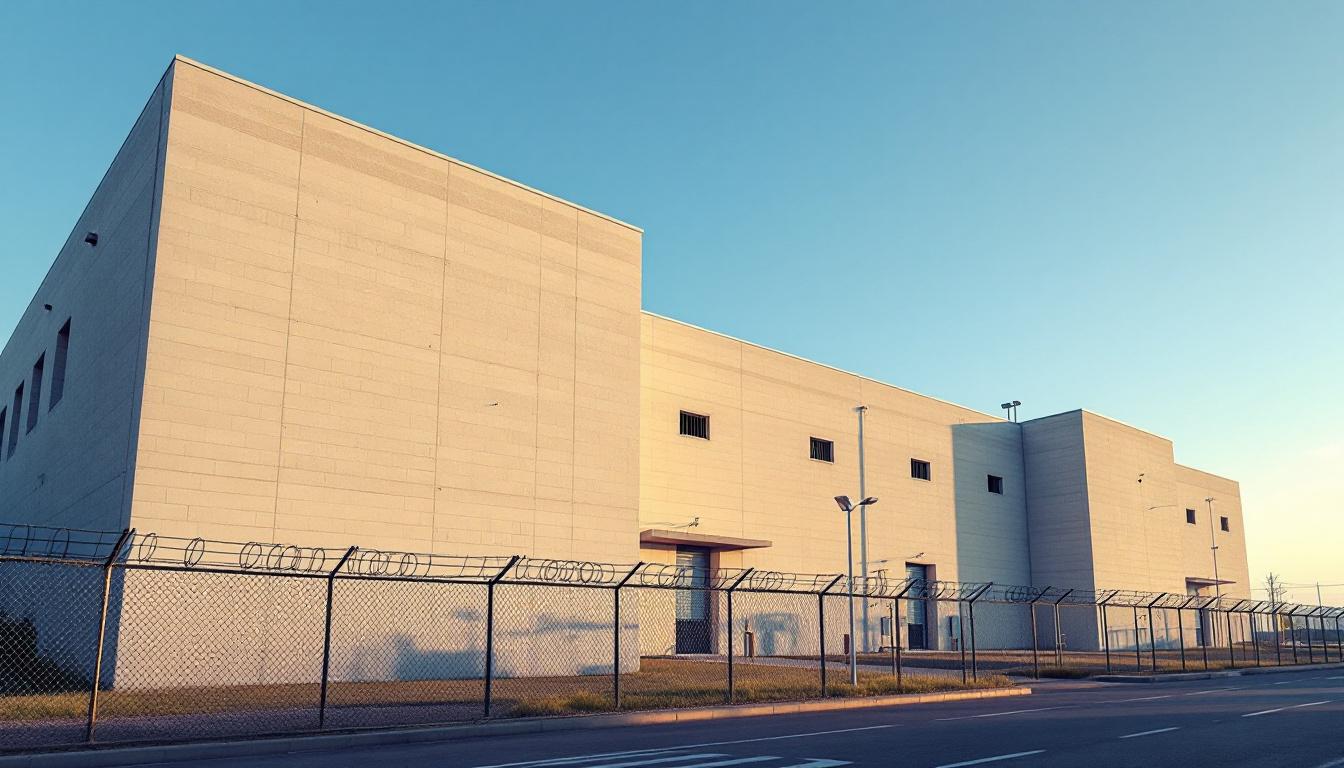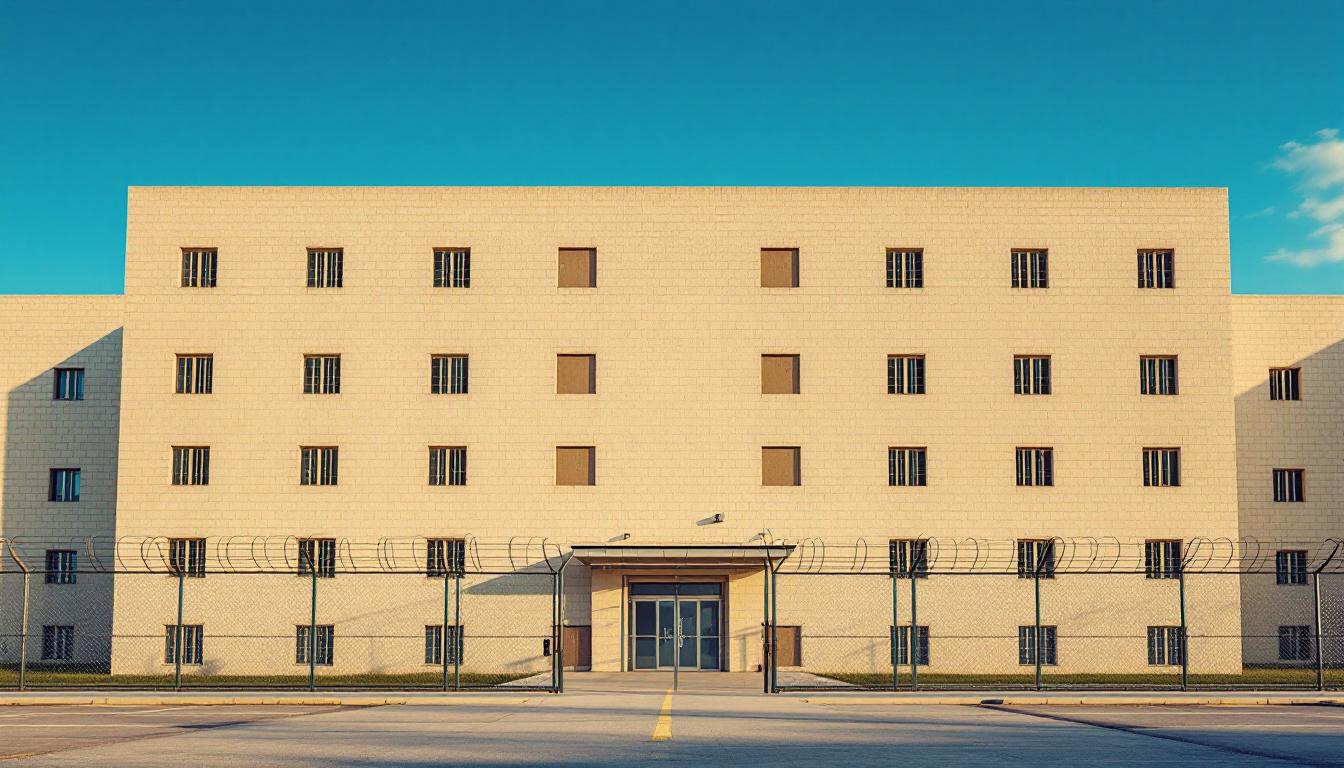
Quick Navigation
How to contact an inmate at El Paso County Jail
This comprehensive guide will walk you through how to connect with an inmate at El Paso County Jail. Follow the steps below to find an inmate and send letters and photos:
- Search for the inmate using our search tool below
- Create your account or log in to Penmate
- Write your message (up to 6,000 characters)
- Send instantly - inmates receive printed copies daily
Find an Inmate
Search for an inmate to start communicating today
Tip: You can search by first name, last name, or inmate ID number
To contact a person at El Paso County Jail start by searching for the person on the official facility website. Perform a search by following these steps:
- Step 1: Enter their first name and last name into the search form and click "Search"
- Step 2: Locate their inmate record
- Step 3: Write down their Inmate ID and any housing information provided
Important! Be sure to enter the person's full name. Nicknames should not be used.
How to Send Messages to Inmates

You can use your phone or computer to send emails, letters, and photos to an inmate. Messages are sent electronically to inmate tablets or kiosks at the facility. If you would like to send a message, start by searching for an inmate at El Paso County Jail.
Sending Photos and Postcards

A great way to send love and support to a loved one at El Paso County Jail is to send photos and postcards. It only takes a few minutes to send photos from your phone and it makes a huge difference. You can also mail postcards with words of support and inspiration, or design your own postcard for special moments like birthdays and holidays.
Important! Be sure not to send any explicit photos or they may not be approved by the facility. You can also use a photo printing app like Penmate to make sure your photos are printed at the correct size (4x6 or 3x5) and are mailed according to the rules and regulations of El Paso County Jail.
Frequently asked questions about El Paso County Jail
-
How long does it take to deliver a message?
If you're sending an email message your letter is usually delivered within 24-48 hours. For messages sent via mail you should expect delivery within 3-7 days. All messages will need be approved by El Paso County Jail.
-
How much does it cost to send a message to El Paso County Jail?
You can send a message free using your phone or mail a message via USPS for the price of a $0.60 stamp and envelope. You can also purchase credits or e-stamps from services starting at $1.99.
-
What services can I use to contact an inmate at El Paso County Jail?
Penmate
You can use Penmate to send letters and photos to an inmate from your phone. It's an easy way to stay in touch during your loved one's incarceration. Use the inmate locator to find an inmate's location and contact information, then you can send messages within a few minutes.
Securus messaging
Securus may be another option for communicating with an inmate at El Paso County Jail. You can create a friends and family account and purchase credits to send messages. All messages will be reviewed and must be approved by the facility.
JPay
Some county jails and state prisons may support sending messages with JPay. You must register an account with the system, find your loved one, and purchase stamps to send messages. For some locations you can also attach photos.
Smart Jail Mail
You may also check if Smart Jail Mail is available at El Paso County Jail. Smart Jail Mail is operated by Smart Communications and has contracted with some state and county jails. After purchasing credits, your messages and photos are sent to the facility, printed out, and then handed out to your loved one.
-
What is the mailing address of El Paso County Jail?
Mailing address:
El Paso County Jail
2739 E Las Vegas St
Colorado Springs, CO 80906
Phone: (719) 390-2000Business hours:
- Monday: Open 24 hours
- Tuesday: Open 24 hours
- Wednesday: Open 24 hours
- Thursday: Open 24 hours
- Friday: Open 24 hours
- Saturday: Open 24 hours
- Sunday: Open 24 hours
-
What are the visiting hours at El Paso County Jail?
Visiting hours at El Paso County Jail vary by housing unit and security level. Generally, visits are scheduled on weekends and holidays, with some facilities offering weekday visits. Contact the facility directly at (719) 390-2000 or check their website for the current visiting schedule. Visits typically last 30-60 minutes and must be scheduled in advance.
-
What items are prohibited when sending mail to El Paso County Jail?
Prohibited items typically include: cash, personal checks, stamps, stickers, glitter, glue, tape, staples, paperclips, polaroid photos, musical or blank greeting cards, hardcover books, magazines with staples, and any items containing metal or electronics. Only send letters on plain white paper with blue or black ink. Photos must be printed on regular photo paper (no Polaroids). Always check with El Paso County Jail for their specific mail policies.
-
How do I send money to an inmate at El Paso County Jail?
You can send money to an inmate at El Paso County Jail through several methods: 1) Online using JPay, Access Corrections, or the facility's approved vendor, 2) Money orders mailed directly to the facility with the inmate's name and ID number, 3) Kiosks located in the facility lobby, or 4) Over the phone using a credit or debit card. Fees vary by method, typically ranging from $2.95 to $11.95 per transaction.
-
Can I schedule a video visit with an inmate at El Paso County Jail?
Many facilities now offer video visitation as an alternative to in-person visits. At El Paso County Jail, video visits may be available through services like Penmate, Securus Video Connect, GTL, or ICSolutions. Video visits typically cost $10-20 for 20-30 minutes and must be scheduled in advance. You'll need a computer or smartphone with a camera and reliable internet connection. Contact the facility for their specific video visitation policies and approved vendors.
-
What identification do I need to visit an inmate at El Paso County Jail?
All visitors must present valid government-issued photo identification such as a driver's license, state ID, passport, or military ID. Minors must be accompanied by a parent or legal guardian who can provide the minor's birth certificate. Some facilities require visitors to be on the inmate's approved visitation list, which may require a background check. Contact El Paso County Jail for specific ID requirements and visitor approval procedures.
-
How can I find out an inmate's release date?
To find an inmate's release date at El Paso County Jail, you can: 1) Use the online inmate search tool if available, 2) Call the facility's records department, 3) Contact the inmate's case manager or counselor, or 4) Have the inmate provide this information during a call or visit. For privacy reasons, some facilities only release this information to immediate family members.
Facility Overview
Contact Information
El Paso County Jail2739 E Las Vegas St
Colorado Springs, CO 80906
Phone: (719) 390-2000
Official Website

About El Paso County Jail
Contributing to public safety through secure housing and rehabilitation services, the El Paso Criminal Justice Center, CO operates as a vital component of the state’s correctional infrastructure in Phoenix, Colorado. Positioned within the mountain region’s correctional network, this CO correctional facility serves individuals at various stages of the justice process, from pre-trial detention through post-conviction housing. The facility’s mission centers on maintaining community safety while providing structured environments that support accountability and personal development for those in custody.
The population served at this correctional facility typically includes individuals facing charges in the local court system, as well as those serving sentences within the state’s jurisdiction. Staff members generally focus on maintaining secure operations while facilitating access to programs that may include educational opportunities, substance abuse counseling, and vocational training designed to support successful community reintegration. Those incarcerated services often encompass basic healthcare, mental health support, and case management assistance, reflecting the facility’s dual commitment to security and rehabilitation. The center’s operations typically align with Colorado’s broader correctional philosophy, which emphasizes both public protection and evidence-based practices aimed at reducing recidivism.
Within Phoenix’s correctional landscape, the facility generally maintains connections with local courts, law enforcement agencies, and community organizations to ensure coordinated case processing and transition planning. The mountain region setting may present comprehensive considerations for operations, from weather-related logistics to transportation coordination with other state facilities. Through its daily operations, the El Paso Criminal Justice Center, CO contributes to the broader goals of justice system effectiveness while working to prepare individuals for eventual return to their communities with enhanced skills and support systems.
Programs & Services
Personal transformation begins through structured opportunities that address both immediate needs and long-term goals for those incarcerated at El Paso Criminal Justice Center. The facility’s comprehensive approach emphasizes skill development, therapeutic healing, and community preparation within a secure environment. These offerings typically focus on building foundational competencies while addressing underlying factors that may have contributed to criminal behavior.
Educational advancement forms a cornerstone of personal development, with programs often including basic literacy instruction, GED preparation, and adult education courses designed to strengthen academic foundations. Furthermore, vocational training opportunities may furnish hands-on experience in practical trades and marketable skills that support successful community reintegration. These structured learning environments provide those incarcerated with tangible pathways toward economic stability and personal achievement upon release.
Therapeutic communities create supportive environments where participants engage in group counseling and peer support networks focused on behavioral change and emotional healing. The facility typically offers trauma-informed care approaches that address underlying psychological factors contributing to criminal behavior. Additionally, community resource connections help bridge the gap between incarceration and reentry, while food service operations and intramural sports programs provide structured activities that promote responsibility, teamwork, and physical wellness within the secure facility environment.
Daily Life & Visitation
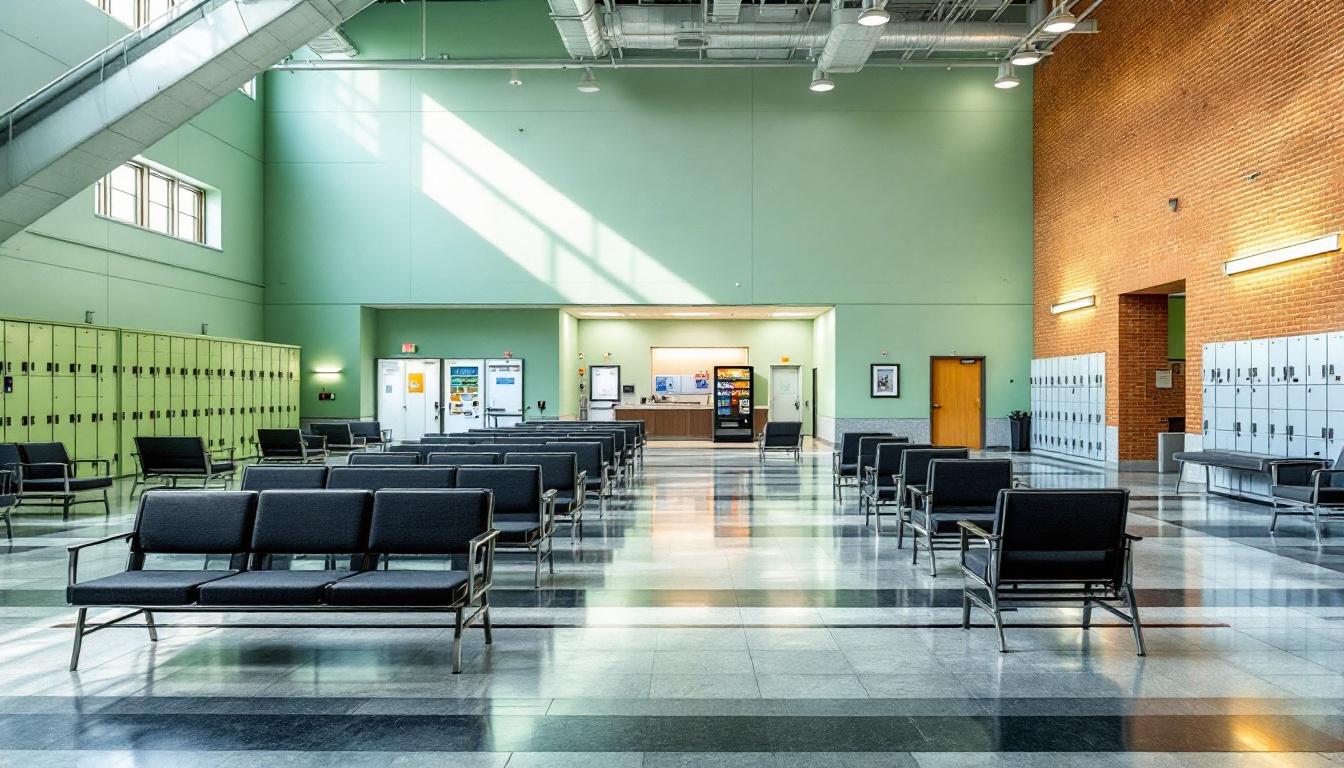
Building connections with family and maintaining social bonds becomes a central focus for those incarcerated at the “El Paso Criminal Justice Center.” Now that residents have settled into the facility’s routine, they regularly participate in structured activities designed to foster both personal development and community engagement. The daily schedule typically begins early with count procedures, followed by breakfast and work assignments that furnish stability and purpose to each day.
Living arrangements generally consist of shared housing units where those incarcerated may develop supportive relationships with their peers. The dormitory-style accommodations usually house multiple residents together, creating opportunities for social interaction and mutual support. Meals are typically served in a common dining area three times daily, providing natural gathering points where residents can maintain conversations and build community connections. Although security protocols are maintained, the atmosphere often allows for meaningful social engagement during these shared times.
Furthermore, the facility typically offers various recreational and programming opportunities that help residents stay connected to both their internal community and outside relationships. Work assignments may include kitchen duties, maintenance tasks, or facility operations that provide structure while developing practical skills. Visitation policies generally allow for regular contact with family members and loved ones, while communication options such as phone calls and correspondence help maintain these crucial outside connections. Those incarcerated usually have access to recreational activities, educational programming, and religious services that furnish additional opportunities for personal growth and community building within the facility environment.
Ready to Connect?
Start communicating with your loved one today
Search for an Inmate
